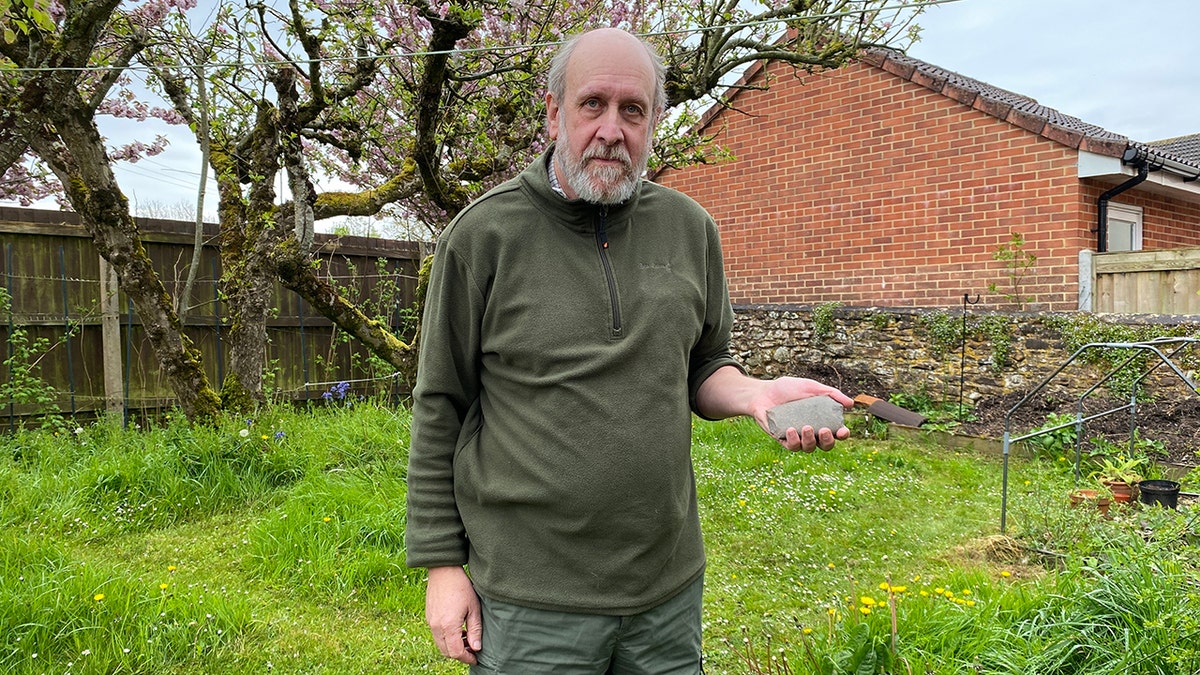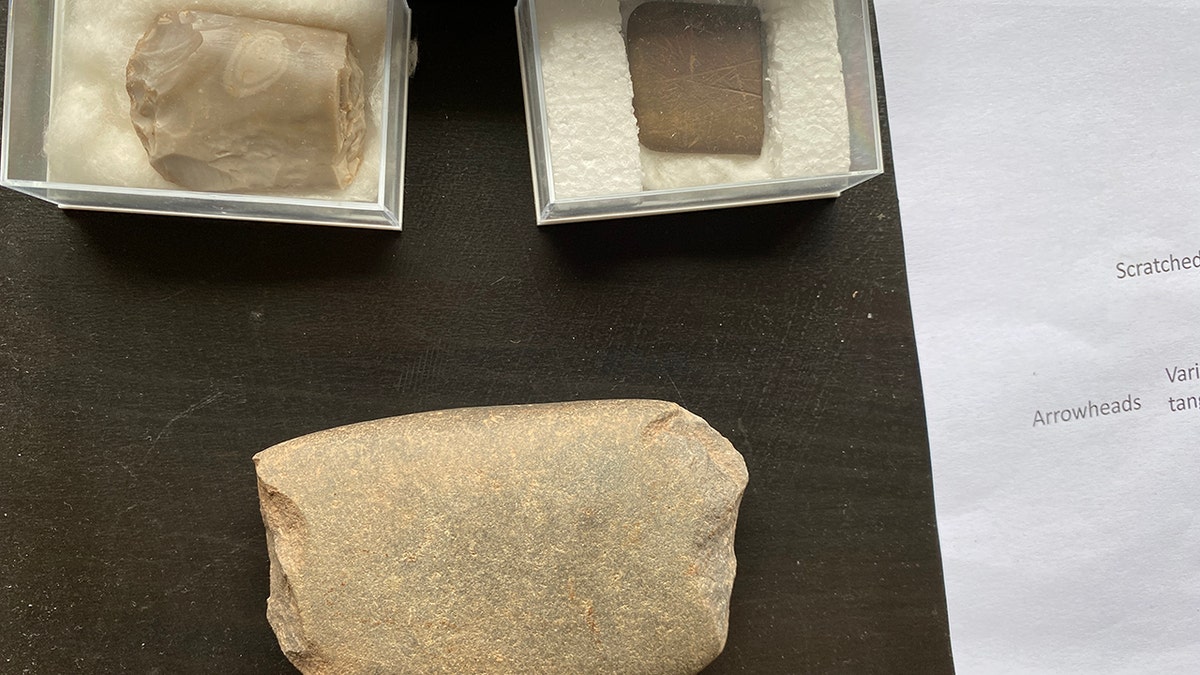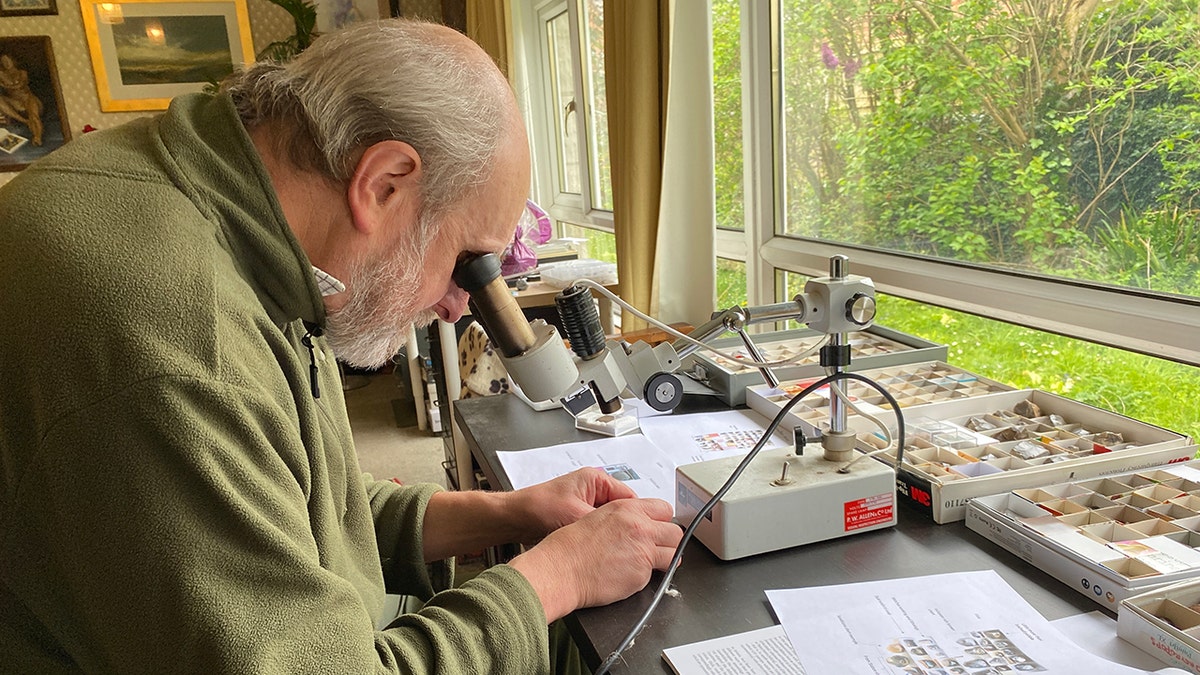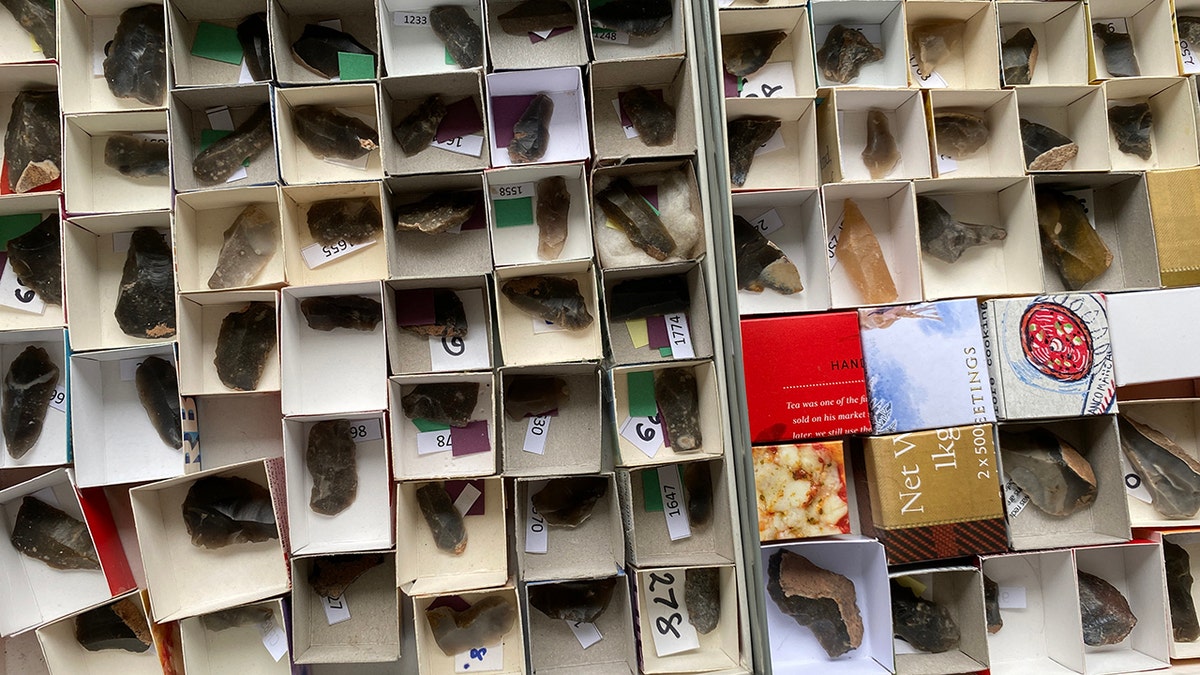Retired geologist turned up an arrowhead while sifting through soil in his backyard: 'Guess what I found?'
By Maureen Mackey Fox News
Published April 25, 2024
Fox News Flash top headlines are here. Check out what's clicking on Foxnews.com.
A retired geologist has claimed he's found a lost Bronze Age settlement in his backyard — after learning to identify artifacts by watching "Time Team," a popular TV series in the U.K. that features specialists who work to uncover details about Britain's archaeology and history.
Andrew Beckly of Wellington, in Somerset, England, has amassed a horde of more than 2,500 artifacts, including blades and axes, after a chance discovery under his own lawn, according to SWNS, the British news service.
He turned up an arrowhead while sifting through soil in his backyard — and said the discovery "shot the history of the area back by 4,000 years."
He said he found it not long after he finished rewatching the popular history program "Time Team" with his wife.
He said, "I was sieving earth in the back garden to get the stones out of it," he told SWNS. "And during [the COVID] lockdown you couldn’t get building materials, and I was building a wall and was using the stones for that."

Retired geologist Andrew Beckly, pictured with a stone axe head in his yard, which he believes dates back to the Bronze Age. (SWNS)
He added, "Finding the arrowhead was the starting point. I went to my wife and said, 'Guess what I found?’"
He said he "knew enough to recognize an arrowhead like that. I was a geologist and I am an avid fan of ‘Time Team.’"
Beckly said he and his wife "rewatched" all the "Time Team" programs not long ago.
"What I have discovered is repeat examples of things here [that] don’t appear in the textbooks."
"All knowledge helps and you learn things without knowing it. That, and visiting museums and having a general interest — but otherwise I might not have known."
Beckly wasn’t sure if the arrowhead was a "stray shot" or evidence of something much bigger — so he expanded his search to nearby fields, he said.
There, he unearthed other evidence.

A collection of what are believed to be Bronze Age axe heads, as discovered recently in a Wellington field in the U.K. (SWNS)
He said, "I went and got a couple of books on prehistoric flintwork and gained an outline [of some] knowledge. But primarily I let the artifacts teach me. I drew every single piece in detail to scale on graph paper across four volumes of books. That’s how I built my knowledge of the material. I let it do the educating rather than trying to fit the books to what I found," as SWNS reported.
He also said, "What I have discovered is repeat examples of things here [that] don’t appear in the textbooks. My gut feeling is this would have been a great location for historic hunter-gatherers."
Referencing the work of archaeologist and "Time Team" star Francis Pryor, Beckly said he had "good reason" to think the Wellington hillside would have been the "perfect place" for ancestors — in part because what is now the M5 highway would have made for an attractive route for migrating animals to travel, SWNS said.

Beckly is shown studying one of the many artifacts he's found around his yard and surrounding area. (SWNS)
He said his findings include the discovery of so-called microliths, small tools that date to the lifetime of woolly mammoths.
He added, "There is an assumption there isn’t very much prehistory in the west country and now this suggests there may be an awful lot more than we realized."
Beckly said when he first brought his findings to heritage experts, they were dismissed — before people later apparently recognized them as Bronze Age tools.
The Bronze Age lasted roughly between 3,000 B.C. and 1,200 B.C.
His findings may now be examined by experts in the U.K. to assess the collection, SWNS reported.

Beckly has cataloged and studied an enormous collection of apparent artifacts. Shown here is part of his collection. (SWNS)
Beckly said he discovered a "bladelet," which appears very similar to samples usually found in France.
He said, "There are things here like this bladelet … We could have evidence of connections 10,000 years ago. It could tell us there was trade and migration between France and the U.K., but we don’t know."
No comments:
Post a Comment